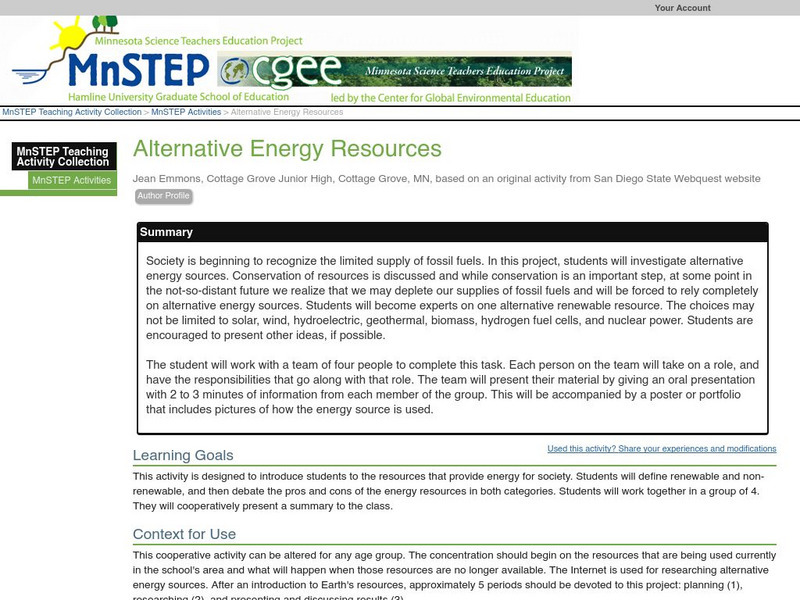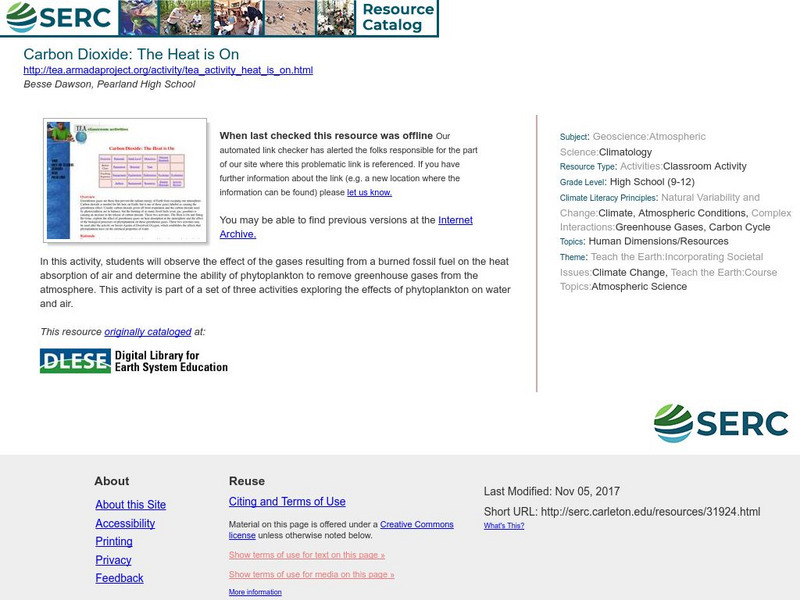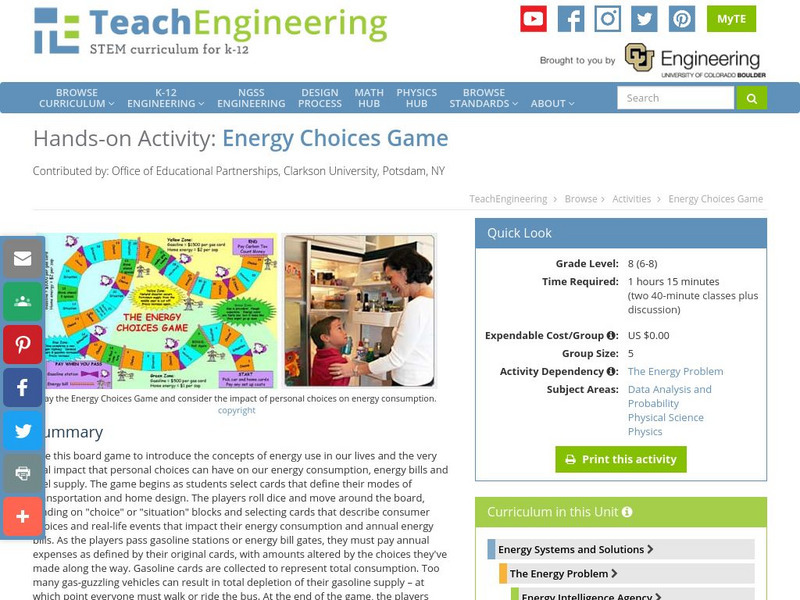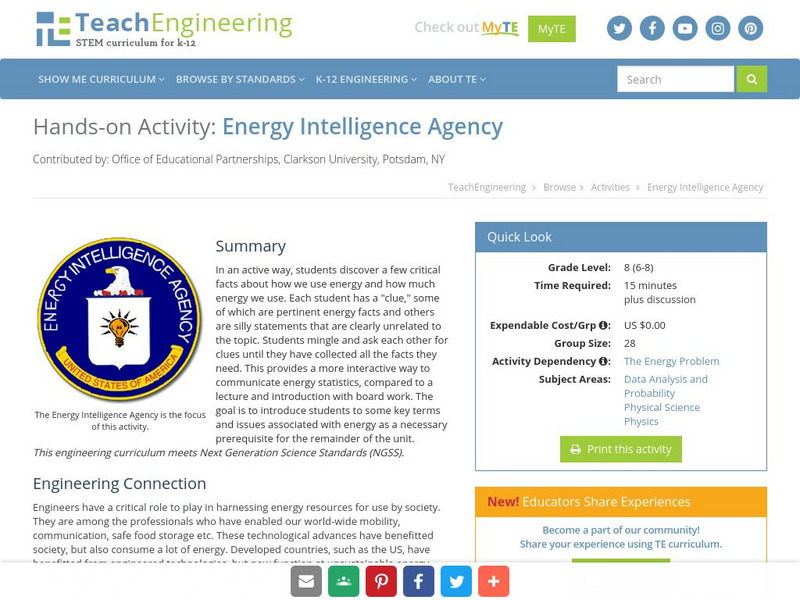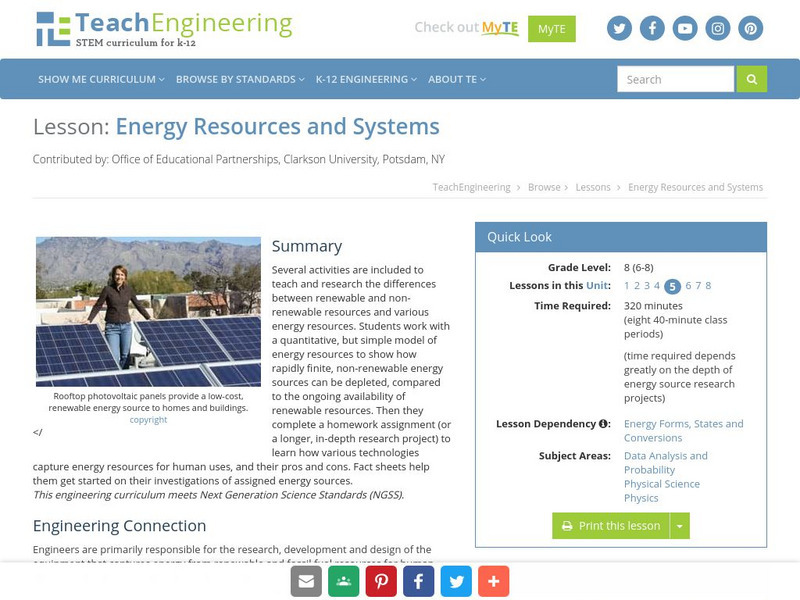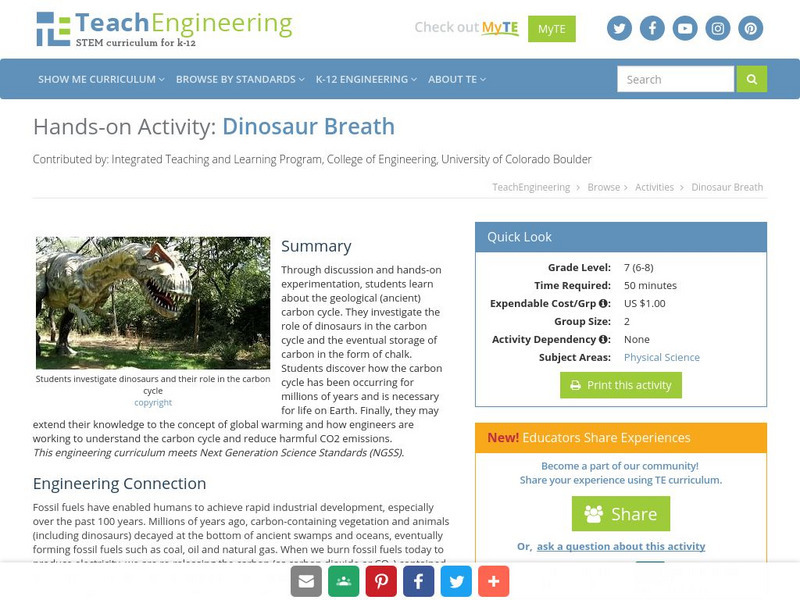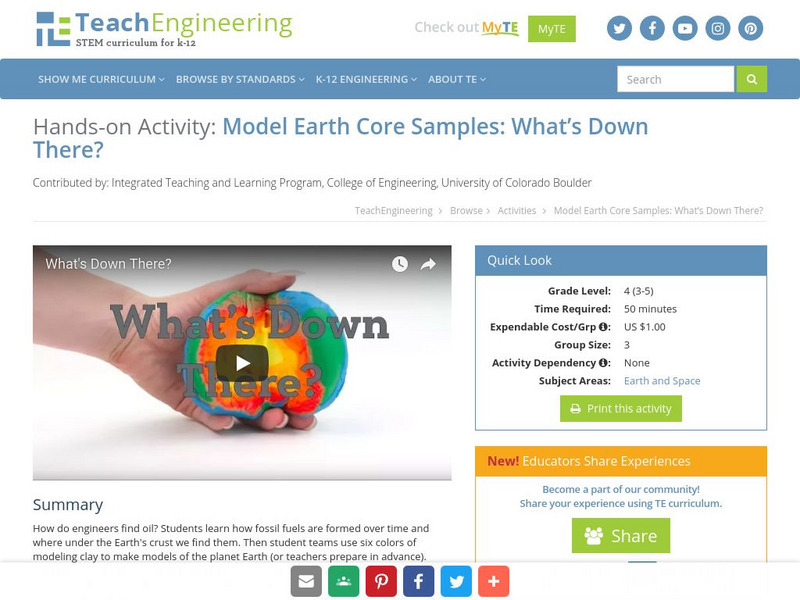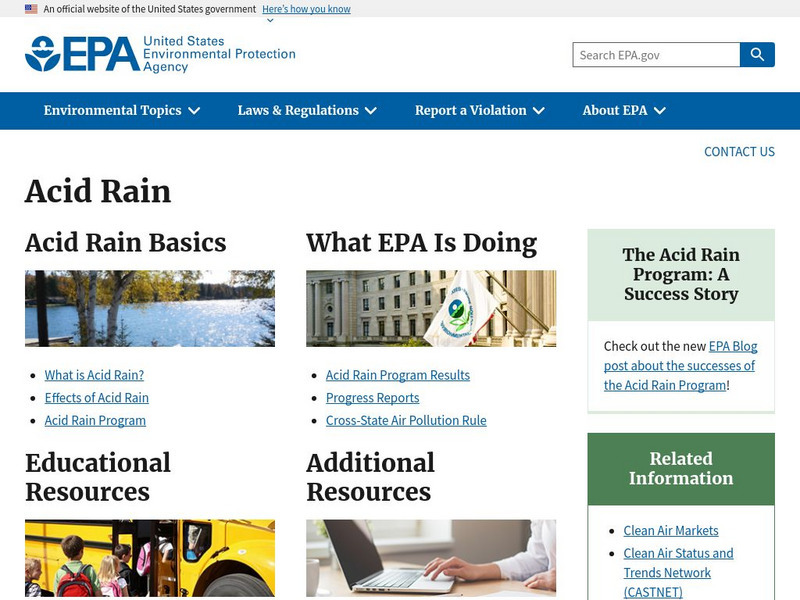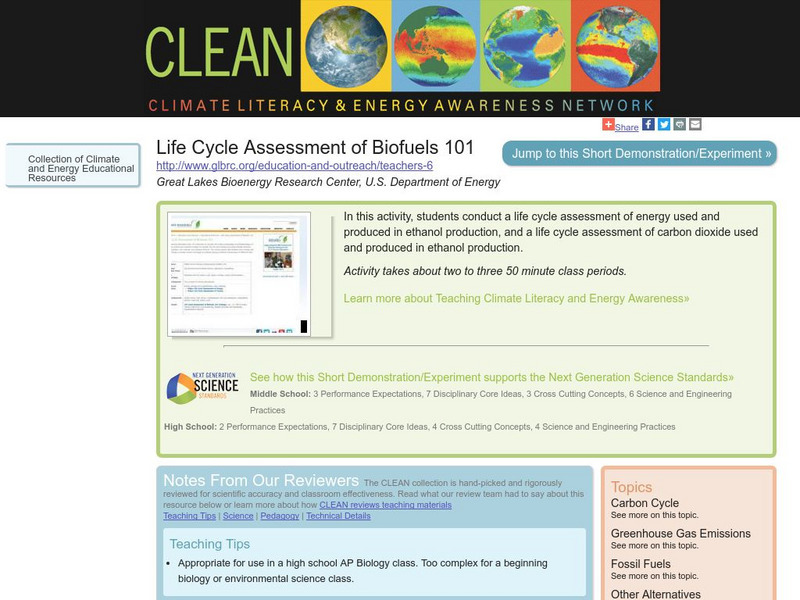Other
Abc Da Energia
ABC Da Energia describes the many ways that energy can be obtained and conserved. It explains different sources of energy, how each works, and how energy can be saved in our daily lives. Interactive energy-saving activities and games...
Alberta Online Encyclopedia
Alberta Online Encyclopedia: Alberta's Petroleum: Heritage Edukit (Teachers)
The lesson plans in this resource were developed by local classroom teachers, are interdisciplinary and feature fill in the blank and role-playing exercises, activities, timelines, charts and questions. The intent is to help teachers...
Science Education Resource Center at Carleton College
Serc: Alternative Energy Resources
Society is beginning to recognize the limited supply of fossil fuels. In this project, students will investigate alternative energy sources. Conservation of resources is discussed and while conservation is an important step, at some...
Khan Academy
Khan Academy: Activity: This Threshold Today
Use the Internet to search for news stories about the Modern Revolution and discuss the provided questions. Helpful links are provided to get you started.
Science Education Resource Center at Carleton College
Serc: Carbon Dioxide: The Heat Is On
In this activity, students will observe the effect of the gases resulting from a burned fossil fuel on the heat absorption of air and determine the ability of phytoplankton to remove greenhouse gases from the atmosphere. This activity is...
TeachEngineering
Teach Engineering: Energy Choices Game
Use this board game to introduce the concepts of energy use in our lives and the very real impact that personal choices can have on our energy consumption, energy bills and fuel supply. The game begins as students select cards that...
TeachEngineering
Teach Engineering: Energy Intelligence Agency
This activity provides an active way for students to discover a few critical facts about how we use energy and how much energy we use. Each student has a "clue", some of which are pertinent energy facts and others are silly statements...
TeachEngineering
Teach Engineering: Renew a Bead
A quantitative illustration of how non-renewable resources are depleted while renewable resources continue to provide energy. The activity requires students to remove beads (units of energy) from a bag (representing a country). A certain...
Science Education Resource Center at Carleton College
Serc: Power Source
In this activity, small groups of students are asked to make concept sketches that track the source of electrical power as far back as they can conceive. The concept sketches reveal students' prior conceptions of the power grid and...
Climate Literacy
Clean: Carbon Dioxide Sources and Sinks
In this lab activity, students use a chemical indicator (bromothymol blue) to detect the presence of carbon dioxide in animal and plant respiration and in the burning of fossil fuels and its absence in the products of plant...
McREL International
Mc Rel: Whelmer #42 Learning Activity: Fire Sandwich
An easy to do activity if you have a Bunsen burner. The activity investigates combustion and heat conductivity. The activity is in lesson plan format that meets NSES standards.
Other
Lehigh University: Energy
An inquiry-based science unit for middle school students centered on the world's energy sources. The lessons integrate technology and lab activities while teaching about energy sources, production, and consumption.
TeachEngineering
Teach Engineering: Energy Resources and Systems
Several activities are included to teach and research the differences between renewable and non-renewable resources and various energy resources. Students work with a quantitative, but simple model of energy resources to show how rapidly...
TeachEngineering
Teach Engineering: Dinosaur Breath
Through discussion and hands-on experimentation, students learn about the geological (ancient) carbon cycle. They investigate the role of dinosaurs in the carbon cycle and the eventual storage of carbon in the form of chalk. Students...
PBS
Nova: Car of the Future
In this activity, student teams research and develop a proposal to decrease the carbon footprint of their city's/town's public transportation system and then prepare a report that explains why their transportation plan is the best for...
TeachEngineering
Teach Engineering: What's Down There?
During this activity, students will learn how oil is formed and where in the Earth we find it. Students will take a core sample to look for oil in a model of the Earth. They will analyze their sample and make an informed decision as to...
US Environmental Protection Agency
Epa: Acid Rain: Students Site
Use this student portal to understand all you can about acid rain and its harmful effects. Modules for interactive games, stories, puzzles, vocabulary terms and links to other activities and experiments.
PBS
Pbs Learning Media: Global Warming: Graphs Tell the Story
Examine these graphs from the NOVA/ FRONTLINE Web site to see dramatic increases in the temperature of Earth's surface and greenhouse gases in the atmosphere.
University of Illinois
University of Illinois: Illinois State Water Survey: Nitrogen Cycle: Human Impact on the Nitrogen Cycle
An overview of the impact of human activities on the environment and how those actions effect the nitrogen cycle.
TeachEngineering
Teach Engineering: The Great Divide
In this activity, students will use cookies to simulate the distribution of our nonrenewable resources (energy). Then, they will discuss how the world's growing population affects the fairness and effectiveness of this distribution of...
American Geosciences Institute
American Geosciences Institute: Earth Science Week: Chemistry of Burning
In this activity, students use pipe cleaners and foam balls to build a model of a hydrocarbon molecule. They then modify it to demonstrate the chemical reaction that happens when the hydrocarbon is burned.
ClassFlow
Class Flow: How Is One Car Different From Another?
[Free Registration/Login Required] This flipchart explores the effect of different types of cars on fuel consumption. Students are guided through a research project regarding fuel efficiency through web links included on the flipchart....
Climate Literacy
Clean: Life Cycle Assessment of Biofuels 101
Multi-lesson plan activity in which learners conduct a life cycle assessment of energy and carbon dioxide used and produced in ethanol production.
TeachEngineering
Teach Engineering: Carbon Cycles
Middle schoolers are introduced to the concept of energy cycles by learning about the carbon cycle. They will learn how carbon atoms travel through the geological (ancient) carbon cycle and the biological/physical carbon cycle. Students...




